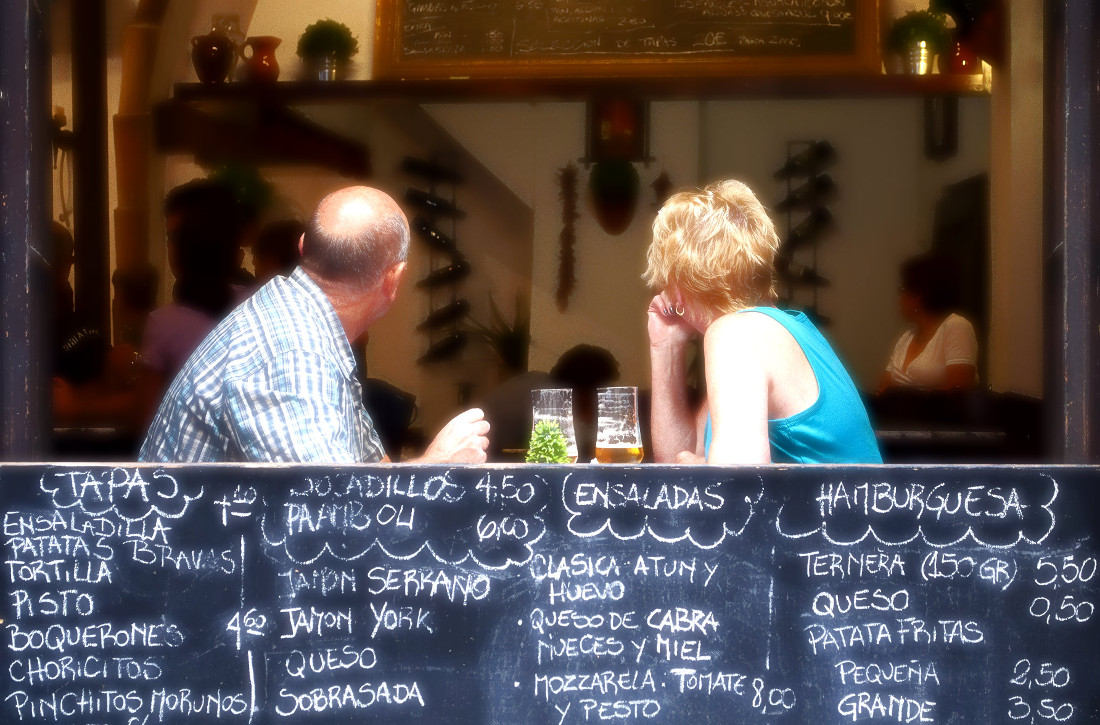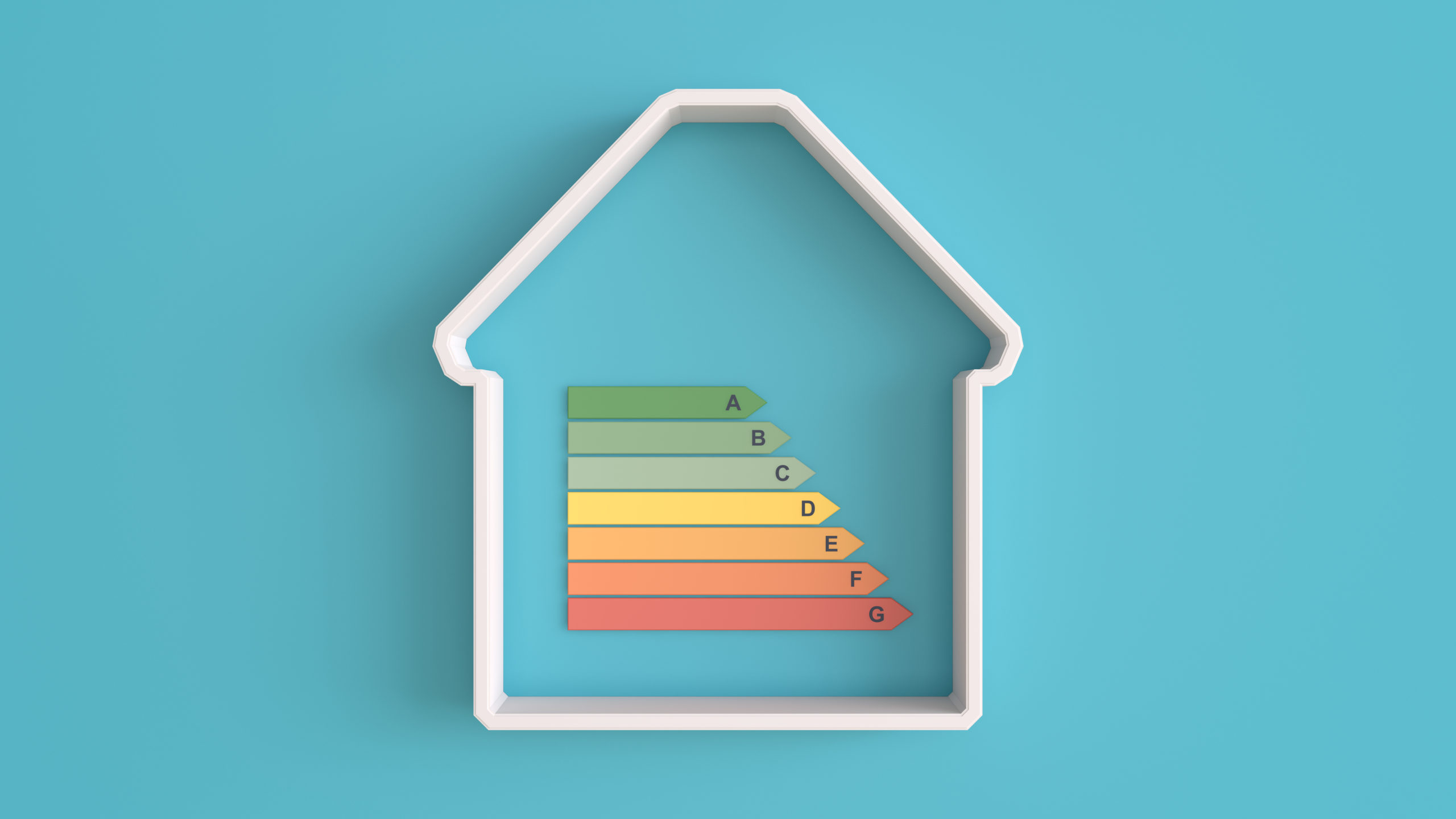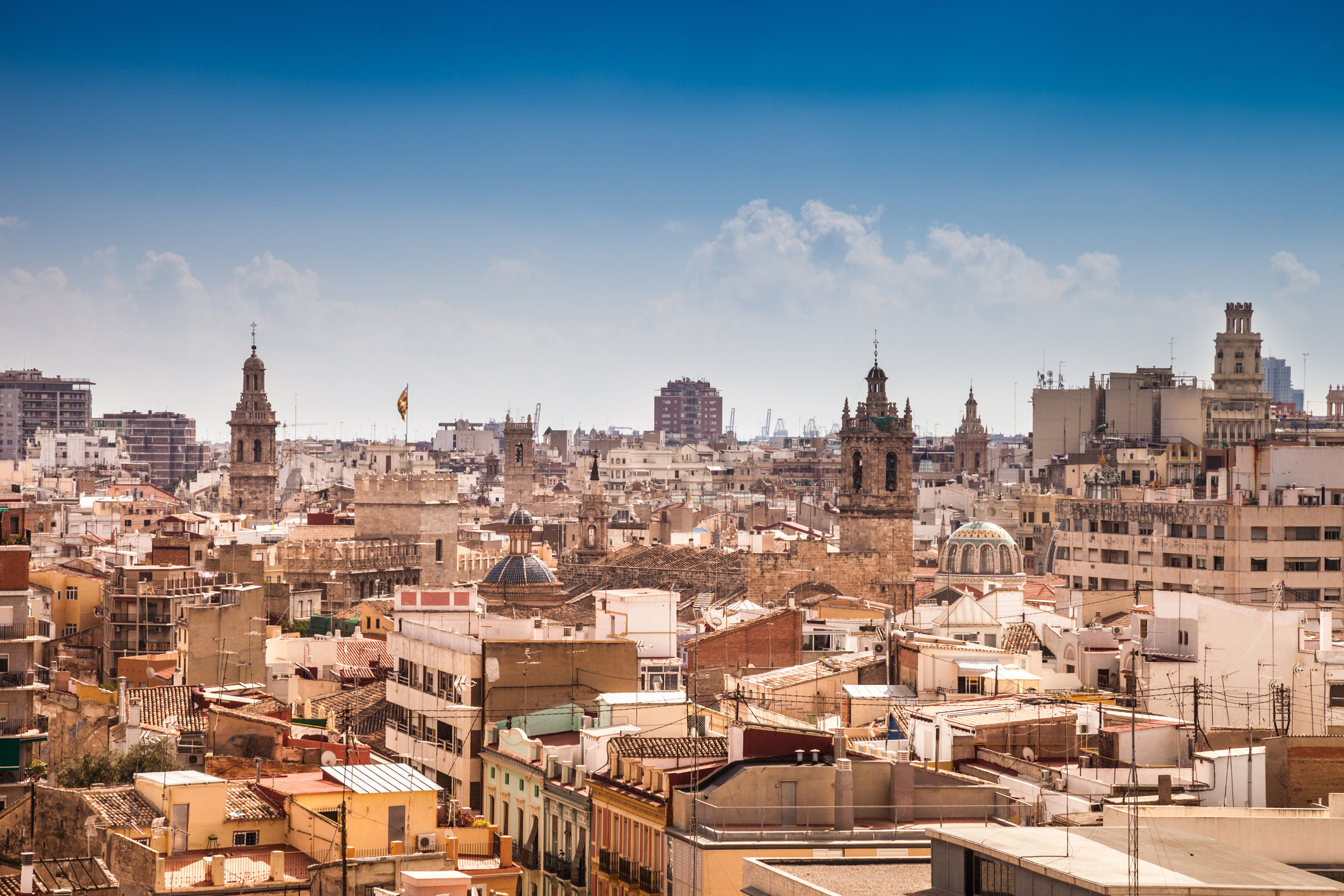How much does it cost to live in Spain?

Spain is no longer as cheap as it used to be but it can still be very good value. In this article we consider how much you should budget for if you are considering coming to live here. What will your monthly outgoings be and how might you keep them to a minimum?
Before the euro there was no doubt that Spain was a much cheaper country in which to live than many other European countries. Now, there is less of a difference. However, there are some startling examples if you want to reduce your cost of living in Spain. Just as important, watch out for those spending decisions that could launch you into debt.
Food and drink
The amount you save on your food will depend largely on where you choose to shop. If you prefer to stick to shops that stock the food you would have eaten in your home country, expect to pay more. However, if you are prepared to try something different and shop in the local Spanish chains of Mercadona, Lidl and Aldi then you can do so more cheaply. The choice there is limited, but buy a Spanish cook book and change your culinary habits and you will be surprised.
Some food products are noticeably much cheaper. Generally fish and seafood will not cost you as much and there is greater variety and quality available. As you would expect, locally produced products are the best value. If you are prepared to stick to seasonal food then you should save on this too. If, however, you are set on eating strawberries all year round, then you will pay for it.
Of course, where people notice most saving is on alcohol. Wine, in particular is much cheaper and you are spoilt for choice even in the smallest of super markets. Locally produced Spanish wine represents the best value. So if it wasn’t your favourite before, try out the rioja and enjoy.
Council tax
Perhaps one of the most remarked on differences by people who come to live in Spain is that of council tax. Many people see what they paid monthly becoming their yearly council tax bill. The IBI (Impuesto Sobre Bienes Inmuebles) is a council tax that every home owner must pay. It is:
- Paid directly to the town hall or the SUMA offices
- Collected annually
- Collected at different times of the year depending on the area where you live
- Based upon the rateable value of your property or valor catastral
Payment for refuse collection was sometimes paid as part of the water bill although a separate collection seems to be more common now.
If you live in most parts of Alicante province, then payment is through the tax collection agency, SUMA. Their website is very good and is also in English www.suma.es . You can make your payment directly on there if you have a bill to hand. Don’t allow these taxes to remain unpaid. You can incur fines and interest to pay.
Electricity
This is one bill where you will not save as much. In fact, some people feel that they pay more for the electricity they receive in Spain than they do in their home country. After a few changes, most people are now billed every month but there are still some who receive bi-monthly bills. In order to reduce the amount of electricity you pay you can chose different tariffs according to your pattern of use.
For example, you can choose a night tariff where you pay half the price during the night and more during the day. You can also choose your hours or summer, winter and weekend tariffs. You can find out more about the different options available on www.iberdrola.es.
You can also keep your costs down if you are contracted to receive low voltage such as 3.3kw. If you want to use your hairdryer, electric water heater and kettle all at the same time, then this will not be enough and you can expect your supply to trip. However, if your needs are meagre then this level can serve you well and costs you less.
Water
You pay your water bill according to a meter reading. Someone from the water board, in Torrevieja this is Agamed, will come and take the reading from an outside meter without you even knowing they’ve been.

Be warned. Sometimes water pipes here are old and leaks are not uncommon. If the leak happens between your meter and your house then you will have to foot the bill. Insurance companies do not cover you for the loss of water, only any damage that it might cause. Some water boards will allow you to take insurance out with them for a very small fee. This could be worth it.
Heating and keeping cool
At different times of the year you will need to spend money on both of these. Nearly all houses now have air conditioning and you will struggle to sleep in July and August if you don’t. Many Spanish people will sit outside their homes late into the evening, but if this is not part of your plan then you need an air conditioning unit and will need to build perhaps 20 to 30 euros more a month into your budget during the months that you use it.
The winter months can also find your budget depleted. It can be surprisingly cold and Spanish houses are not generally set up for the winter. This article is not the place to compare the different methods of heating your home. Many people choose portable gas fires, whilst others use electric radiators and some the heating option on the air conditioner. Others have the luxury of a wood burning stove.
Whatever you choose set some additional money aside during the months of December, January and February. It can be a miserable time if you haven’t some way of keeping warm.
Watch out for dearer items
Spain isn’t always cheaper. Some products are surprisingly expensive or even not available. Some electrical items are an example of this. Buy your computers and laptops abroad if you can as they are likely to be significantly more expensive in Spain. Some other random items are also comparatively dear. The printers might be cheap but ink for them is quite extortionate. Software for your computer can be hundreds of euros more expensive in some cases.
It can be quite useful to make comparisons between Amazon.co.uk (for example) and Amazon.es. One general rule of thumb is that the extra you pay in transport from the home country just about equals out the extra taxes you have to pay to buy products here. Making this comparison will also alert you to where there is a major difference in the cost of goods. In some cases for no apparent reason. If you have visiting relatives they might be able to help you out with some of these.
Living in Spain
Spanish people, on average, tend to be paid less than you would expect in many other European countries. As a result, most entry fees to different events or buildings are good value. It costs less to go to the cinema and significantly less to equip yourself with a measure of popcorn and a fizzy drink whilst you’re in there.
Eating out is much cheaper, mostly because the alcohol is cheaper. It doesn’t often pay to have takeaways. There are also cheap ways of eating. If you go to a tapas bar you can get a range of small dishes at a cheap price with your drink. Special tapas routes are held at certain times of the year which can be an entertaining way of discovering the different eating establishments in a town without paying too much.
The menu del dia is a popular alternative which can see you eating a three course meal for as little as €7. Of course, there are expensive restaurants too that can rival those in other European countries. Save them for the special occasions, the local tapas can be just as tasty.

It’s fair to say that you can enjoy yourself cheaply in Spain. The good weather means that you don’t have to spend your weekends in shopping malls. The Spanish love for fiesta and tradition means that there is something going on most weekends in your local town and most of it will be for free.
Many Spanish people do not earn a great deal of money and it is a culture which accepts that times can be hard. Perhaps it is different in the big cities, but certainly in many parts of Spain ‘getting by’ is the norm and you will not seem out of kilt if this is your lifestyle too.
Of course, there are the golf clubs, exclusive sailing clubs and Michelin star restaurants. But you can live very simply here and still feel that you are one of the privileged. You will find that there are many clubs you can join that don’t charge the earth and walking, hiking, swimming and cycling can be enjoyed all year round for very little money at all.
We recommend
If you would like to keep down the cost of living in Spain then we recommend the website Money Saver Spain. They have lots of advice and tips for making your euro go further and we include some of their ideas in our monthly newsletter too.
Of course, our list here is from our own experience of living in the Costa Blanca. Different regions vary and your lifestyle will make a huge difference too. What can’t be budgeted for is the exchange rate. When making your first calculations it is worth assuming a poor rate of exchange if you are paid or receive a pension in a different currency. Any extra is a bonus.
It’s true that Spain is not as cheap as it used to be. However, with its beautiful weather, abundance of cheap and cheerful food and a little forward planning, you don’t have to be a tycoon to live here.
Cost of living in a small, two bedroom bungalow
This is an example of how much it costs a couple to live in Spain. It is not an extravagant list and you would need to be living simply. Income tax has not been taken into account. However, it does show, that with care a couple can live on an income of just over €1,000 a month.
| Monthly electricity bill (€60 x 12) | €720 |
| Water bill (€70 x 3) | €210 |
| Waste collection (€21 x 3) | €63 |
| Weekly food bill (€80 x 52) | €4,160 |
| Annual car insurance | €420 |
| Annual house insurance | €320 |
| Monthly landline and internet (€80 x 12) | €960 |
| Monthly mobile (€60 x 12) | €720 |
| Annual property tax | €141 |
| Annual road tax | €80 |
| Monthly petrol (€50 x 12) | €600 |
| Gym / club membership (€30 x 12) | €360 |
| Annual holidays | €1,000 |
| Monthly entertainment and eating out (€100 x 12) | €1,200 |
| Birthdays and Christmas | €500 |
| Miscellaneous and contingency | €1,200 |
| Grand total | €12,654 |
Share in






 Ábaco Advisers on Facebook
Ábaco Advisers on Facebook Ábaco Advisers on Twitter
Ábaco Advisers on Twitter Ábaco Advisers on Instagram
Ábaco Advisers on Instagram Ábaco Advisers on LinkedIn
Ábaco Advisers on LinkedIn Ábaco Advisers on YouTube
Ábaco Advisers on YouTube Ábaco Advisers RSS
Ábaco Advisers RSS